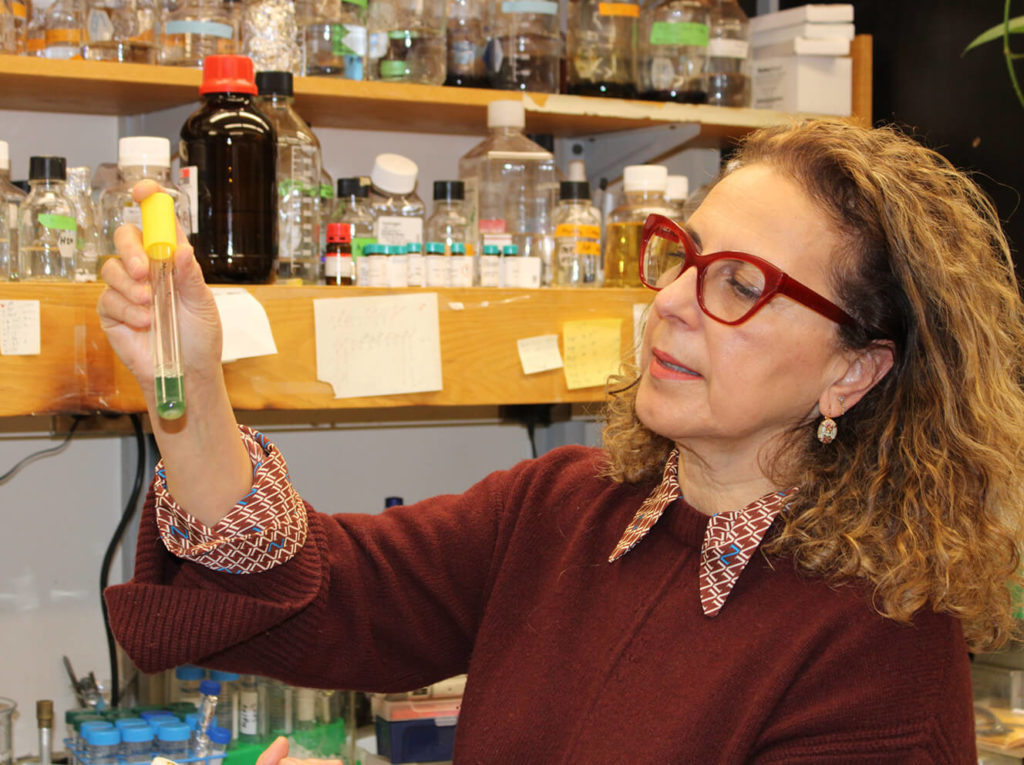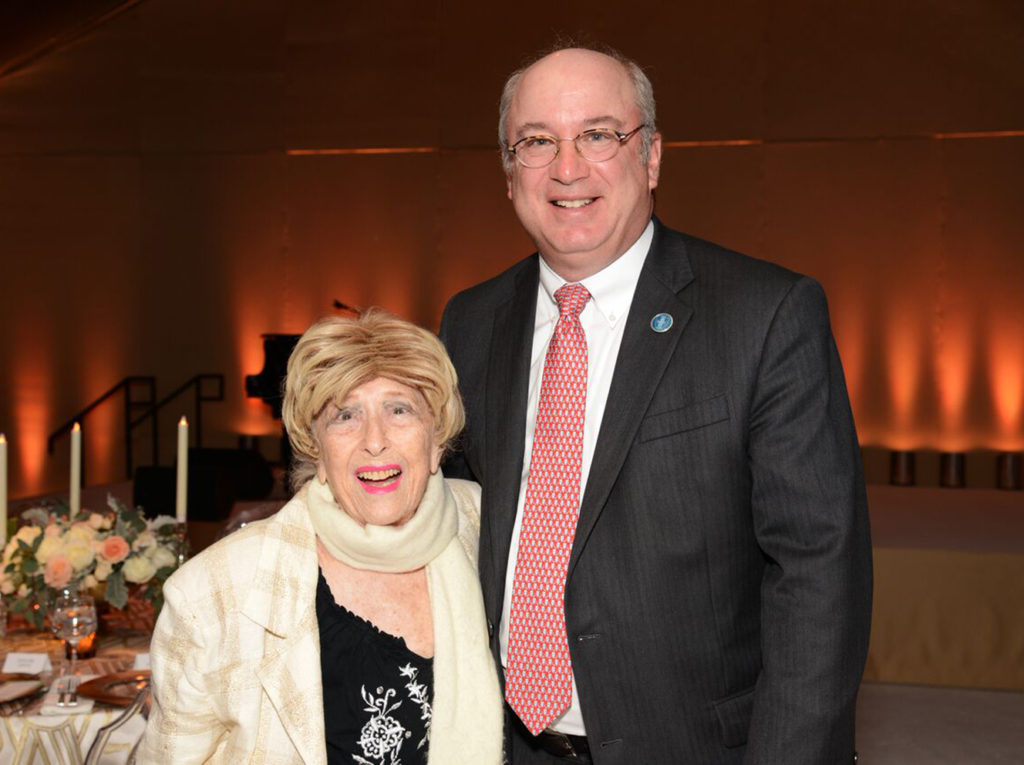While the number of women in the medical professions continues to increase, there are still numerous obstacles and gender disparities that women must navigate.
In 1993, the Women in Academic Medicine Committee, originally chaired by Jane D. Claflin, honorary trustee, was established to facilitate the academic careers of women in science at Massachusetts General Hospital. Recognizing that a significant obstacle to career advancement is the difficulty of maintaining research productivity during the child-rearing years, this Committee, with the sponsorship of the Executive Committee on Research, established the Claflin Distinguished Scholar Awards. The awards provide $50K in support each year for two years.
Since 1993, more than 100 women have received Claflin Distinguished Scholar Awards, and this year, six new scholars were named. Congratulations to the 2020 Claflin Scholars!

The majority of severe traumatic brain injury (TBI) during infancy is due to abuse. Severe TBI from abuse results in a high rate of mortality and morbidity, including post-traumatic epilepsy, blindness, cerebral palsy, intellectual disability and behavioral disorders.
Beth A. Costine-Bartell, PhD, and her team study specific brain damage patterns that commonly result from abusive head trauma to understand the factors and cellular cascades that contribute to ongoing brain tissue damage even after the child arrives at the hospital.
They have found that traumatic seizures and subarachnoid hemorrhage may be the key factors that drive the extensive spreading of tissue damage.
By understanding the pathophysiological cascades and neurogenesis induced by severe traumatic brain injury, researchers can identify therapeutic targets and test potential therapies specific to the damage pattern and stage of development in children, and ultimately reduce the extent of brain damage, death and disability resulting from abusive head trauma.

Elevated oxidative and replication stresses have been detected in almost all cancers, and these stresses promote many aspects of cancer including tumorigenesis, tumor progression and drug responses.
Li Lam, MD, PhD, and the team at the Lan laboratory are especially interested in understanding the molecular mechanisms by which cancer cells survive from increased stress levels, radiation and chemotherapeutic drugs and seeks to find efficient approaches to block these mechanisms for sensitizing tumors to chemo and radiotherapy.
Telomere shortening is the time clock for lifespan of normal cells, and they are particularly vulnerable to oxidative stress. Researchers in the Lan lab are also investigating whether and how oxidative damage at telomeres triggers telomere attrition, senescence and the promotion of tumorigenesis.
Upon replicative and oxidative stresses, cancer cells remain replicated without telomere shortening, and with the help of the Claflin Award, Dr. Lan aims to elucidate the mechanisms that orchestrate the maintenance of telomere in cancers.

Gestational diabetes mellitus (GDM), high levels of glucose in the blood during pregnancy, is associated with a markedly increased risk of future maternal type 2 diabetes (T2D).
Despite this, too few women with a history of GDM are screened for T2D or prescribed effective preventative therapy.
Identification of women who have the highest risk of future T2D during pregnancy would allow for more timely and effective T2D prevention. However, incomplete knowledge about the physiology underlying GDM and long-term progression to T2D hinders this approach.
With the help of the Claflin Award, Camille E. Powe, MD, aims to fine tune prediction of T2D after pregnancy by evaluating women with beta-cell dysfunction during pregnancy, assessing chronicity, underlying genetics and risk of future T2D.

Acute kidney injury (AKI) after cancer immunotherapy is common, and non-invasively determining the underlying cause of kidney failure is a major diagnostic challenge.
AKI leads to hospitalization, treatment interruption, and is associated with an increase mortality risk in patients with cancer.
Meghan A. Sise, PhD, is working to improve the non-invasive diagnosis of two manifestations of AKI—allergic interstitial nephritis after immune checkpoint inhibitor therapy and acute tubular necrosis after chimeric antigen T cell receptor therapy in patients with advanced malignancies.

Research being done by Shannon N. Tessier, PhD, is aimed at overcoming several barriers in organ transplantation so that everyone who needs an organ can get access to this life-saving treatment.
This includes understanding the underlying biology of organ injury throughout the transplantation process, extending the length of time organs can survive outside the body during transport and discovering new diagnostic markers to monitor transplant patient outcomes.
The Claflin Award will provide flexibility to focus on the third goal of improving the post-transplant care of organ recipients.

Meagan Wasfy, MD’s primary research project examines the differences between heart enlargement due to exercise and due to a common form of heart disease called hypertrophic cardiomyopathy (HCM).
In some instances, with available testing, it is not possible to know in a given patient whether the heart enlargement is healthy and adaptive due to their exercise or whether it is due to a mild form of HCM.
It is critical to distinguish between the two because HCM is amongst the most common causes of sudden death in young athletes, and once diagnosed may result in modification of or disqualification from sports participation.
She is currently developing a new way of imaging the heart to gain insight into the processes that underlie the development of an athlete’s heart versus HCM, and to add a superior diagnostic tool to help physicians determine the cause of heart enlargement in cases of clinical uncertainty.
To learn more about how you can support the Claflin Distinguished Scholar awards and research at Mass General, please contact us.
This story first appeared in Bench Press, a blog produced by the Mass General Research Institute.
The Research Institute: Saving Lives Through Science
 The Massachusetts General Hospital Research Institute is the largest hospital-based research program in the United States, with a community of more than 8,500 people working across more than 30 institutes, centers and departments.
The Massachusetts General Hospital Research Institute is the largest hospital-based research program in the United States, with a community of more than 8,500 people working across more than 30 institutes, centers and departments.
Our researchers work side-by-side with physicians to pioneer the latest scientific advancements for curing disease and healing patients in Boston, across the United States and around the world.
To learn more about the Research Institute, please visit our website.







